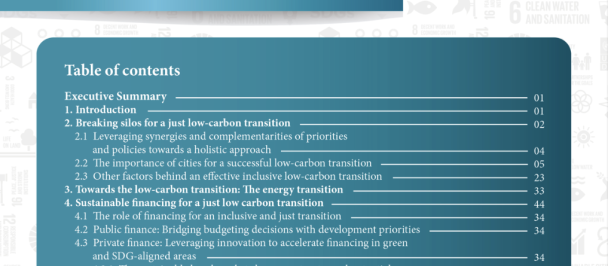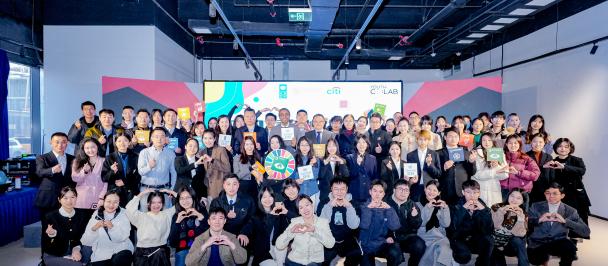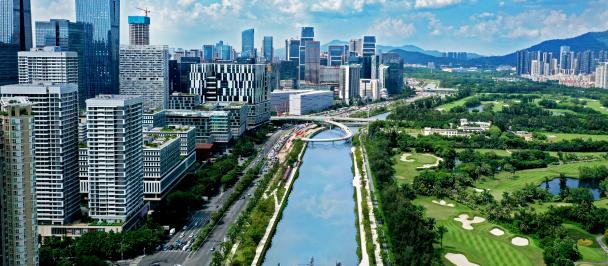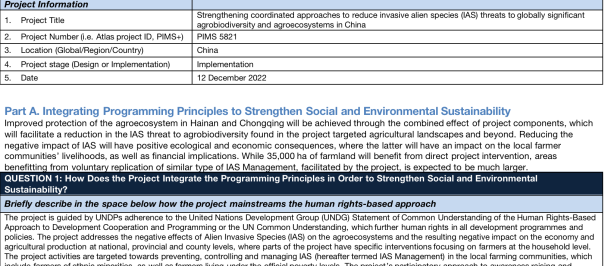UN Policy Dialogue on Green Development
Beijing, 12 January, 2021 - Under the leadership of the UN Country Team in China, United Nations Development Programme (UNDP) and United Nations Environment Programme (UNEP) jointly organized a policy dialogue on Green Development with key Chinese policymakers, academia, private sector and civil society representatives to discuss the way ahead for green recovery following the COVID-19 crisis, as well as for mitigating climate, biodiversity and environmental challenges.
“We are all well aware that at the current rate, trends in global temperature are set to rise to 3°C and more, if we do not take urgent, immediate actions. The priority of the United Nations is thus to build a Global Coalition for Carbon Neutrality by 2050, while targeting a reduction of global emissions by 45% by 2030,” stated Ms. Amakobe Sande, United Nations Resident Coordinator in China (ad interim) during her opening remarks.
Ms. Sande emphasized that the United Nations applauded the high-level commitment that constituted China's pledge to become carbon neutral by 2060. "This is without a doubt a momentous objective with significant ramifications for future economic and social policies in China – and beyond. "
The opening speech was followed by Ms. Beate Trankmann, UNDP Resident Representative in China. “In light of the carbon neutrality pledge, China has the potential to emerge as a leader in global decarbonisation efforts and recover greener from COVID-19.”
In support of this goal, Ms. Trankmann highlighted several policy options, including moving away from investing in high-carbon technologies. “Renewables have no fuel costs and can count on rapidly improving storage and transmission options that are increasingly geared to address variability challenges.”
On the importance of environmental protection, Dr. Tu Ruihe, Head of UNEP China Office, reiterated that “COVID-19 is a strong warning message that nature has given us.” He stated that a return to the previous normal is not sustainable. “All of our efforts should aim at a better normal – a greener and low-carbon normal.”
The opening session in the morning saw Deputy Director General Sun Zhen from China's Ministry of Ecology and Environment introduce China's most recent environment policy framework following President Xi Jinping's announcement in September 2020. This was followed by Professor He Jiankun, Chairman of the Academic Committee of the Institute for Climate Change and Sustainable Development of Tsinghua University, who emphasized the increasing cost of not taking immediate action to achieve carbon neutrality. The morning session was closed by Li Junfeng, Chairman of the academic committee of the National Centre for Climate Change Strategy and International Cooperation, who presented a roadmap on boosting China’s renewable energy development for a greener energy mix in China.
In the afternoon, three interrelated sessions on green development followed the opening of the UN Policy Dialogue with opportunities for online participants to raise questions. The first session was dedicated to green technology development and how it could serve as one of the powerful engines for global economic recovery and SDGs attainment. This session explored key trends and solutions in boosting green technology innovation and international cooperation in China’s energy sector. The second parallel session discussed green finance, a lifeline for low-carbon transition and a key instrument to make a low-carbon transition a reality. The third session was dedicated to biodiversity and nature-based solutions. This sequence pointed out how COVID-19, which emanated from the wild, showed how health was intimately connected with humans' relationship to the natural world.
This event was the 3rd of the United Nations Policy Dialogue series planned by the UN Country Team in China following the launch of the UN Framework for the Immediate Socio-Economic Response to COVID-19. The 1st and 2nd United Nations Policy Dialogue focused respectively on social protection and food security. Achieving a green development path depends significantly on coordinated action worldwide. The COVID-19 pandemic has set a new type of challenges to the 2030 Agenda and the Sustainable Development Goals (SDGs) attainment in China and the world. It is a reminder of the grave consequences of transgressing environmental boundaries, calling for whole-of-government and whole-of-society efforts to achieve low-carbon transition.
For more information, visit: https://www.un.org/en/sections/issues-depth/climate-change
and https://www.un.org/en/sections/general/un-and-sustainability/index.html.
For media enquiries, please contact:
Yue Zhao, Communications Officer, yue.zhao@undp.org
Louise Xi, RCO Communications Focal Point, xi.li@one.un.org

 Locations
Locations



